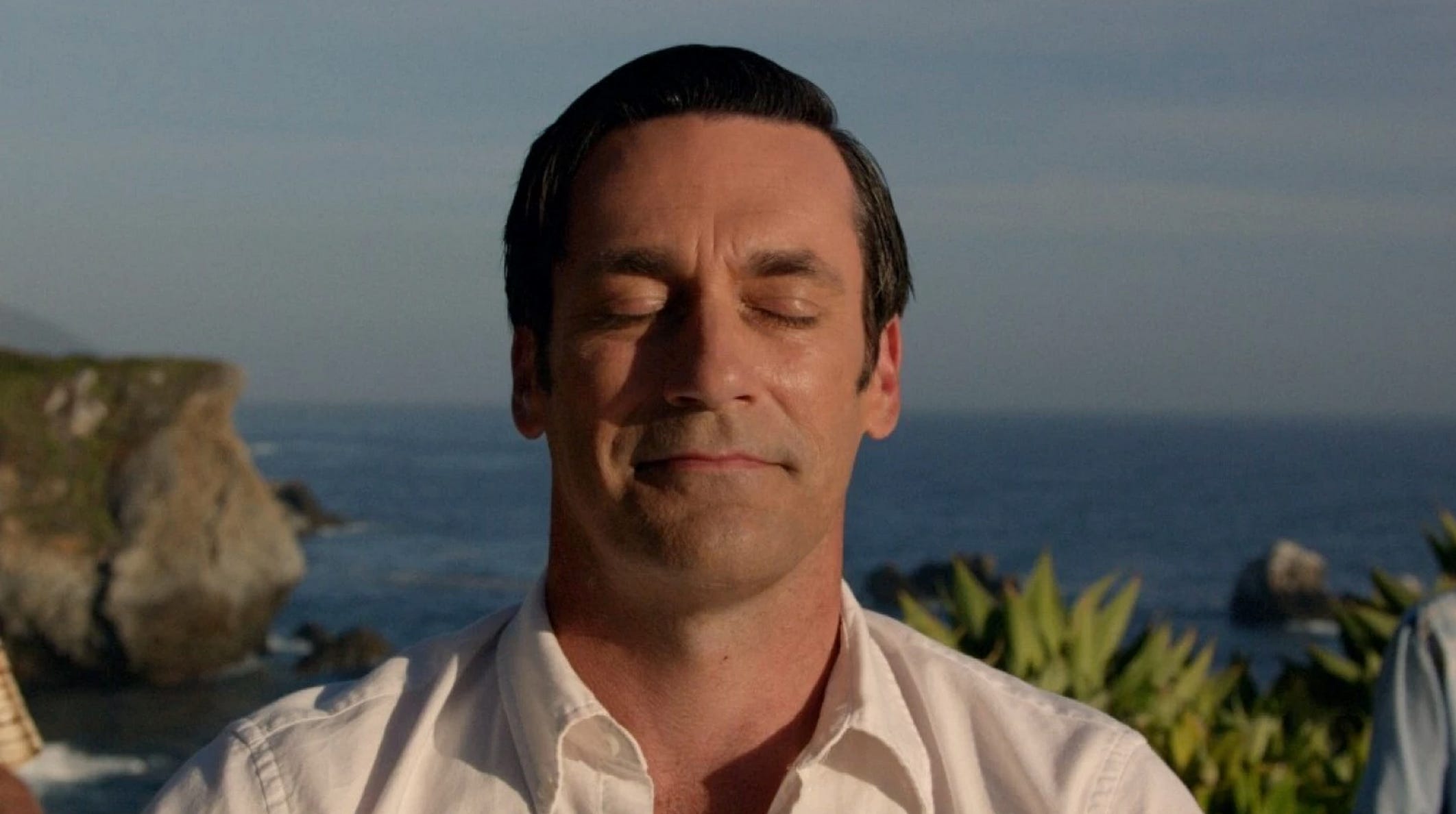I'd Like to Buy the World a Coke
This post was originally written eight years ago and never published. I’m posting it this week as part of a seven day publishing experiment (that has been extended by one week) to take a deep dive into my drafts folder, and air out the stuff that I hesitated on.
This is one of my favorite pieces in my drafts folder. It’s my thoughts on the Mad Men finale but ultimately, a dive into the meaning of Don’s work selling sugar water and why it has value. I think I hesitated here as it’s a pretty wild conclusion and I wanted to get it right.
Steve Jobs is famous for recruiting the CEO of Pepsi with a line.
“Do you want to sell sugar water for the rest of your life, or do you want to come with me and change the world?”
I heard about this story when I was a kid and its one of those things that had an impact. Coke is bubbly brown sugar water. It makes people fat. It gives you heart problems and rotten teeth. Research suggests if you are a regular drinker by the time you are 10, you are 3x as likely to get diabetes.
And these are the facts I would often spout to anyone who would listen to them when I was a teenager. Coke was a kind of capitalistic plague. The company was awful but, perhaps even worse, were the agencies in charge of making it even more popular. I drank coconut water and green juice.
Much has changed since then. I have swallowed some of my angst. I drink Coke sometimes at a movie theater or with bad whisky. But, if I’m honest with myself, the judgement hasn’t really gone away.
Those who make technology often roll their eyes at Coke. The product is boring. It is technically finished. There is a recipe locked in a safe somewhere in Atlanta. The people who are paid to make it more popular are making ads that are often as homogenized as its syrup.
But then I found myself wondering why my heart stopped when I watched the commercial play in the last seconds of Mad Men.
It was a beautiful ad from 1971. But it was also something that made me choke on my own prejudice.
If Coke is a finished product then what is it actually selling?
We’ve watched him for almost a decade. What has Don Draper been doing this whole time?
The simplest answer I can come up with is that Don has been listening.
Don suffered. His life could have ended at the bottom of a rocky cliff. Or on the pavement of Madison Avenue. He did things he regretted. He was a fraud.
But he also climbed the ladder. He got to a point in his career where he could walk into a room, pitch, and get one of the most powerful organizations in the world to say yes.
And this is the bizarre power of Coke, Pepsi, Kraft, and the other huge brands where the product is mostly figured out.
They are a canvas.
Coke’s annual marketing budget is 2.9 billion. The sell 1.8 billion cans every 24 hours. They are in every country on this planet except Cuba and North Korea.
Coke’s message is simple.
We are one people among many. We’re united by simple things like a smile, a song, and a Coke.
Many in tech roll their eyes or vomit at this. They see it as a cynical exploitation of multiculturalism. The corporation doesn’t care about the message, it just wants to sell you sugar water. But couldn’t it easily go the other way?
Maybe we have Coke because selling multiculturalism is actually really hard.
Our planet has 196 countries. Many ethnicities and religions. Two sexes. There’s an eternal political value in exploiting these differences for political gain and this is the current we will always be swimming in.
It’s not abstract. Nations may not kill each other at the same rate in which they used to but the wounds are still there. Getting a few billion people to wake up every morning and swallow the same thing is a big deal. It’s political in its own way. If we want to imagine a world where the lines between nations matters less, we need more shared experiences.
Sugar water gives us an excuse for a global shared experience. It’s simple enough to understand. It’s profitable enough to fund massive world wide campaigns. And those campaigns need money because the work is extremely difficult to produce and expensive to distribute. People are cynical. Making something that inches us towards unity takes patience and eventual leaps of faith.
Don was a deserter of The United States Military. Both his marriages failed. He hurt people in his life when they needed him most. But he survived.
When he got to the top, this is the message he sent.
A note from 2023. Special thanks to Kate Lee and Rick Webb for edits on this.


